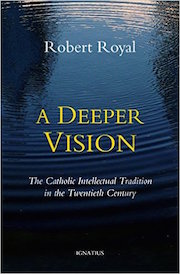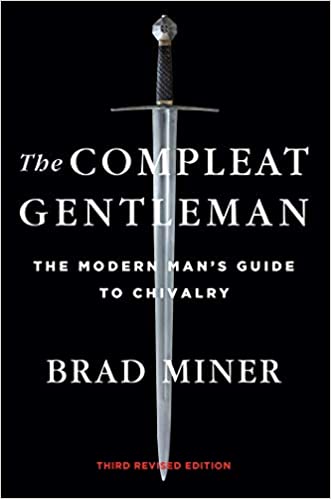For more than a decade now, the bishops of our nation have called for an observance of a week of prayer and reflection on religious freedom to begin on the liturgical memorial of Saints Thomas More and John Fisher (i.e., June 22). Why this day? Because those two men were martyred, precisely for their refusal to finesse the libertas Ecclesiae (the freedom of the Church). The battle over this matter did not emerge full-blown from the brow of Zeus during the reign of Henry VIII; we find uncanny parallels four centuries earlier in England.
Henry II was on a collision course with the bishops of twelfth-century England because he was attempting to usurp their rightful authority to govern the Church. Henry needed as primatial bishop a man to harass the bishops into submission and thought he had found the right man in his hunting and partying buddy, the Lord Chancellor Thomas à Becket.
To Henry’s amazement, upon receiving episcopal consecration, the “party animal” saw things differently and would not serve as the rubber stamp for the King’s oppressive policies against the Church. An offhanded remark (“Who will rid me of this troublesome priest?”) was taken as a royal wish by the ambitious flunkies who murdered the Archbishop of Canterbury during Vespers in his own cathedral on December 29, 1170.
And again, this time in the sixteenth century, we meet a king whose lust was so out of control that he wouldn’t take “no” for an answer to his demand that the pope grant him a divorce. This Henry, like his namesake of the twelfth century, thought he could count on his Lord Chancellor, Thomas More, to bring the bishops into compliance with his will and in defiance of the pope.
He, too, was distressed to discover that his dear friend was a man of such great conviction and faith that he could not move “the King’s good servant” to cease from being “God’s first.” One of the saddest chapters in ecclesiastical history informs us that every English bishop, save John Fisher, capitulated to the King’s usurpation of the role of the pope. When told that the Sovereign Pontiff intended to make Fisher a Cardinal for his loyalty to the See of Rome, Henry quipped, “The pope can give him the red hat, but he’ll have no head to put it on!”
Interestingly, Hollywood has done pretty well with these stories. Beckett, A Man for All Seasons, and The Tudors all gave us great cinema. Becket, More and Fisher, however, did not die for show; they died as martyrs, that is, witnesses to religious liberty.
That is the historical backdrop to the cause of religious freedom in the Anglophone world. We have seen it played out in different times and places throughout the history of the Church, but always with the same goal: to make the Church the puppet of the State.

With this history lesson fresh in our minds, let us consider the current American crisis.
Early on in the Obama regime, astute observers of the political scene noted a disturbing trend in the jargon being employed by his Administration as our constitutional right to “freedom of religion” was being spoken of as “freedom of worship.”
Is this just quibbling over words? No, words matter. For instance, if you’re living in a house, does it really matter whether you are deemed the “landlord” or the “tenant”?
Coming from an Eastern European background (with a martyr on the Ukrainian side of the family), I have a special sensitivity to religious freedom. For decades, the Soviets proudly and boldly proclaimed that they had “freedom of worship” (even that wasn’t true), but there was certainly no “freedom of religion.” The same situation prevails in Communist China today, as well as in many Islamic states.
Pope Benedict XVI chose as his theme for 2011’s World Day of Peace: “Religious Freedom, the Path to Peace.” The pope’s conclusion: “It is inconceivable that believers should have to suppress a part of themselves – their faith – in order to be active citizens. It should never be necessary to deny God in order to enjoy one’s rights.”
Let’s be clear. The Church is not lobbying for preferential freedom; she simply expects, indeed demands, the rights which are hers by nature and by the Constitution. Nor are we talking about establishing a theocracy. Here it is important to distinguish between secularity and secularization.
There is a good secularity, which the Church has come to recognize, especially as she has viewed the American situation from the vantage point of the twentieth century. Jesuit Father John Courtney Murray helped the Church Universal come to this awareness through his 1960 ground-breaking book, We Hold These Truths, and through his contributions to the decree on religious liberty at Vatican II, Dignitatis humanae. Father Murray stressed that freedom for religion, not freedom from religion, was the goal of the U.S. Constitution’s Bill of Rights.
Secularization, on the other hand, is a conscious effort to marginalize religion, religious influence, and religiously motivated citizens. Vigorous secularization demands that we respond with vigorous evangelization: for the sake of the Church’s future and for the sake of society’s future.
What kind of secularity would be beneficial to the Church and society? One which promotes pluralism, a concept espoused by most modern democracies – an approach that enables diversity to flourish within a unity of purpose, achieving unity without uniformity. From a religious perspective, that would mean not mere toleration of religious influences but encouragement of them. Indeed, the very nature of a free society demands that all voices be raised and that all be respectfully heard, including religious voices.
Believers need to be convinced – and then need to convince everyone else – that the Fathers of Vatican II got it right when they declared in Gaudium et spes: “Without the Creator, the creature vanishes.” (n. 36)
History supports that assertion. Just look at the bloodshed of every godless movement of modernity from the French Revolution to the Mexican Revolution and the Spanish Civil War to the murderous campaigns of the Nazis and Communists. Clearly, “without the Creator, the creature vanishes.”
Freedom of religion, thus, is far more than being able to go to one’s house of worship once a week. Because faith makes a claim on the totality of our lives, it permeates every dimension of a believer’s existence and all the institutions with which he is involved.
For the Catholic Church which, by her very nature, exhibits a public face and presence, that means freedom for all our corporate works emanating from our schools, health-care facilities, and charitable programs.
For the Church to be the Church, she cannot be muzzled in her proclamation of the truth of Jesus Christ, whether that truth is proclaimed from the pulpit, in the classroom, in counseling sessions, or in lobbying for programs that seek to make the City of Man look more and more like the City of God.
Intelligent and committed Catholics, then, must know what their God-given rights are, as well as their constitutional rights founded on those God-given rights, and to resist mightily in every forum possible any effort to reduce “freedom of religion” to “freedom of worship.”
As Catholics and Americans, we have both the right and the duty to position ourselves in that long line of witnesses to the truth that Christ and His Church can never be silenced by any earthly power. Failure to represent that cause would be a failure in both moral courage and civic responsibility, for which we would have to answer before the throne of the only Power who matters in the final analysis, the One who is the King of kings and Lord of lords.
During this Religious Freedom Week, it behooves us to keep ringing in our ears the wise words spoken by the late, great Archbishop Fulton Sheen, who warned us: “A religion that doesn’t interfere with the secular order will soon discover that the secular order will not refrain from interfering with it.”














